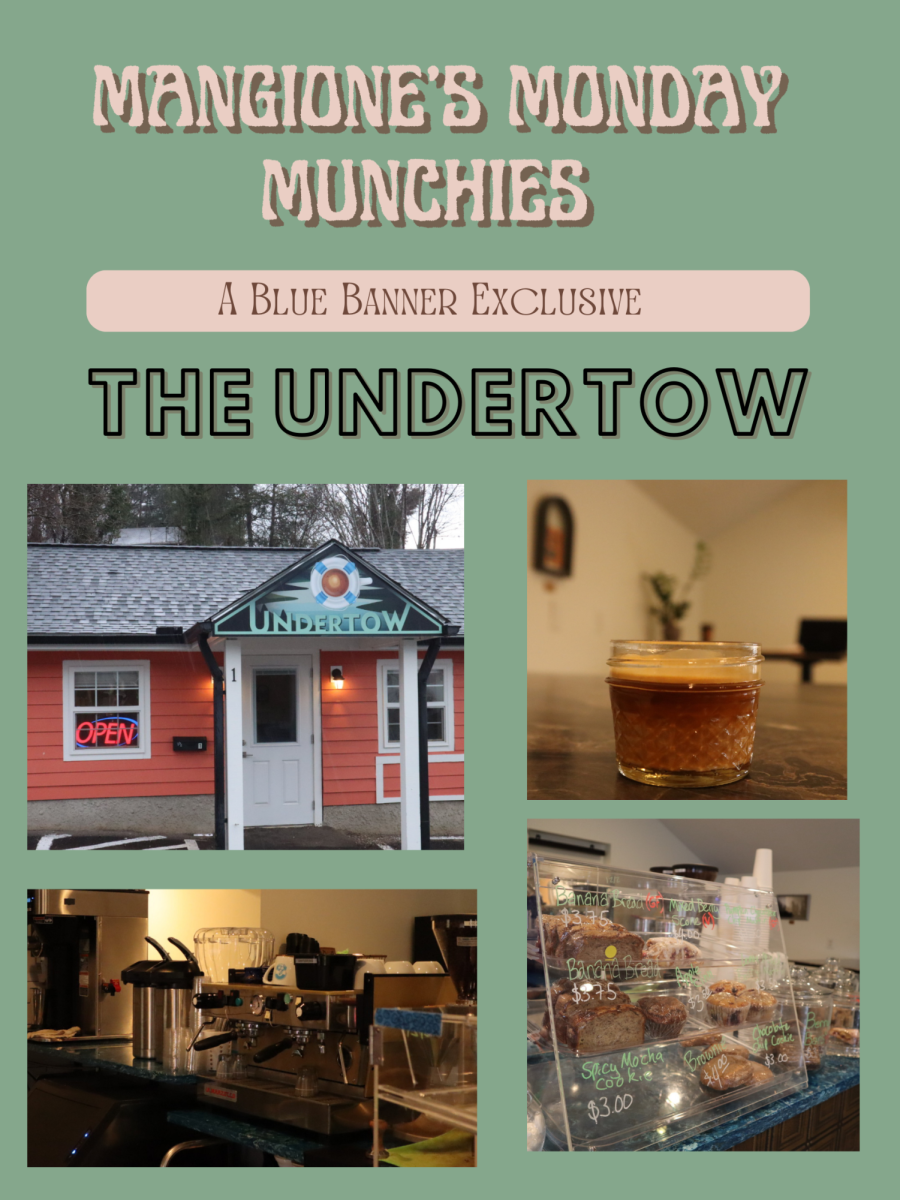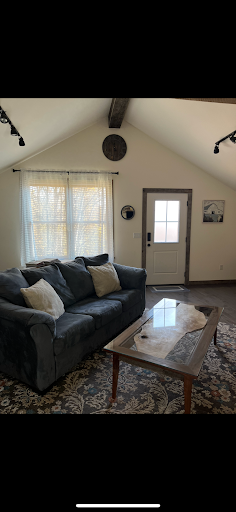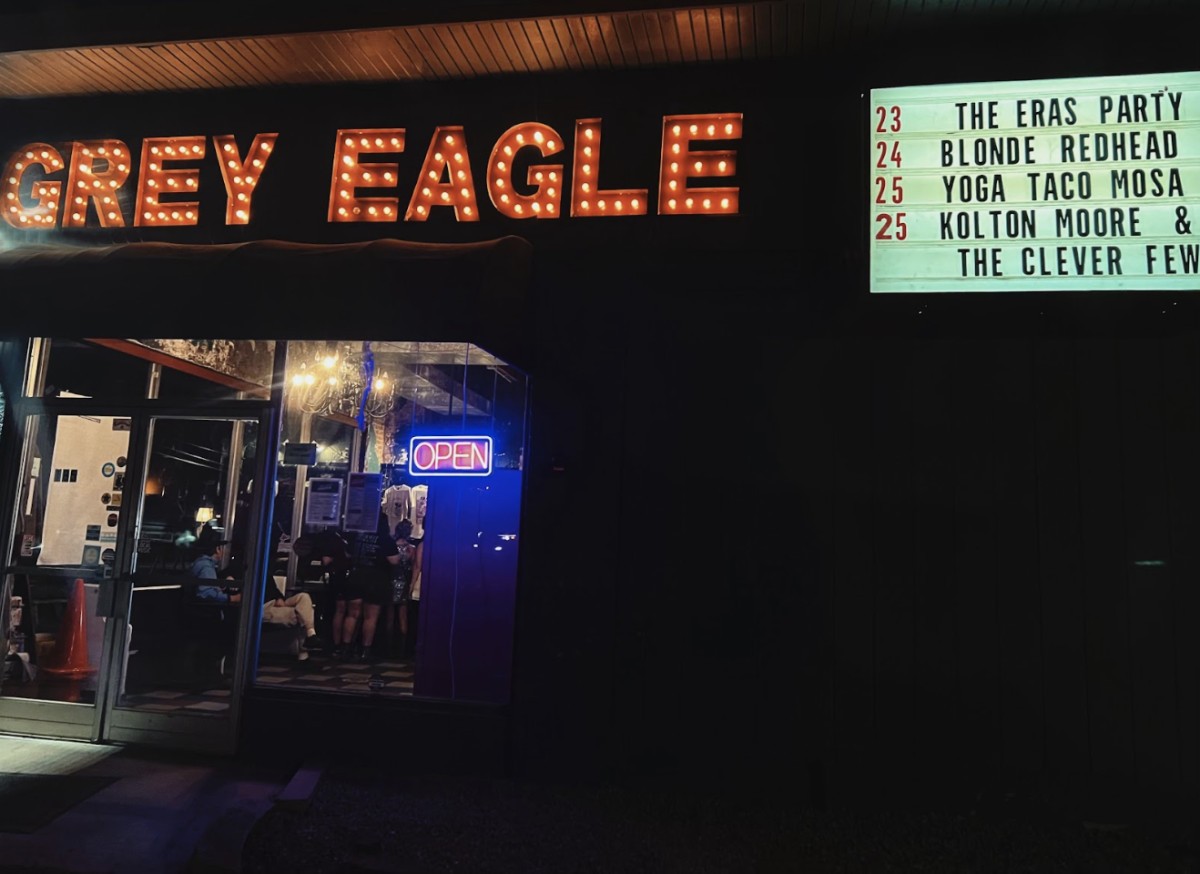Maddy Sherer
Arts & Features Assistant Editor
[email protected]
By the time Frank X Walker was about 9 or 10 years old, he finished all the Hardy Boys, Nancy Drew and Sherlock Holmes books his local library offered. Feeling unfulfilled, he peered over the help desk counter to ask the librarian why there weren’t any books about black people. The librarian leaned toward him and replied with a sneer in her voice, saying, “Why don’t you write one?” So one day, he did.
In the year 2000, Walker published his first collection of poems in a book titled Affrilachia, but he said her comment remained with him as

he continued to pursue his career as an author and poet.
“I thought that was cruel, but it stuck with me and it did explain that absence, I recognized that absence and it followed me through high school,” he said.
Walker said his school curriculum lacked diversity to the extent that he thought it impossible for a black person to make a living as an author.
“I thought to be a writer, you had to be a dead white man, because that’s all we would read, that’s all that was served to us,” he said. “So I had no chance of being a writer, even though I love writing and I love reading.”
Walker said college gave him some of the diversity he sought out at his hometown library all those years ago.
“I was also looking for a reflection of me and something that valued my community, my mother and siblings and where I lived, and even though that work existed in the world, it just wasn’t in Danville, Kentucky, circa 1970,” he said.
Walker said he only discovered Malcolm X after he started college.
“So when I went off to college and started discovering all these other authors, I thought, ‘where have I been?’ I felt so uneducated, mostly because of things I just didn’t know about.’”
Still, Walker said he felt encouraged by his newfound knowledge.
“I kept writing, I kept reading, but I didn’t really understand the power of it all until I went off to university,” he said. “My degrees are all in English and creative writing, so I didn’t come at this sideways or by chance. This is something I’ve wanted to do.”
Despite his dedication to writing, Walker didn’t begin his college career as an English major.
“I went to study engineering because when I mentioned art and writing, they said, ‘you’re going to starve. How you going to feed yourself? Do you know another black person who has made a living with art and writing?’” he said. “So I went off to study engineering. Not that I knew another black engineer at the time, but the recruiter told my mother that I would make at least $60,000 a year as soon as I graduate.”
He said he hated it so much, he dropped out and got a job at a meat packing plant, which turned out to be far worse for him.
“I pleaded with my mom to change my major to something I was interested in, but she forced me to compromise. It had to be something to feed myself with, she didn’t want me to starve,” Walker said.
He said he changed his major to journalism, which at least allowed him to continue writing. This didn’t stick either.
“Somewhere along the lines of being a journalism major, I realized I didn’t need my momma’s permission to change my major,” he said coyly. “So I did.”
Many people from the UNC Asheville campus say they are grateful for this decision.
“As far as his poetry goes, I was completely and utterly moved. His work touched on subjects like addiction, the civil rights movement, family, space and most recently his issues navigating between his newborn son and his father who recently passed away,” said Madison Sellars, a UNCA sophomore who attended Walker’s reading and lecture.
“One of his poems read, ‘his arrival gave my father the permission to leave.’ This was so crushing and loud and I saw so many people choke back tears. This theme of death and life is not something people are comfortable with, but Walker seems to enjoy challenging this idea of what is uncouth to say in a room full of old, white ladies,” she said. “I really love that he is beginning to challenge this idea of a white, ignorant, shoeless Appalachia that we see so often in popular culture.”
Wiley Cash, a writer-in-residence and organizer of the Visiting Writers Series at UNCA, said he agrees with this sentiment.
“I think we’re at a historical moment where Appalachia is running the risk of being codified as a white region driven by issues of poverty and addiction and unemployment and that’s kind of the hillbilly elegy narrative that came out of the election,” he said. “A writer like Frank X Walker says, ‘that’s not the Appalachia I know at all.’”
Walker said he rejects the perpetuated concept of what the general American considers as the average Appalachian.
“It’s almost predictable, almost like it’s scripted. I was at the University of Washington, in the state of Washington and a young person asked me if there are any other black people in Kentucky. And I replied, ‘I am not a test tube baby,’” Walker said. “I said, ‘Well, my mother is one of 10, my father is one of 11,’ and I pretended like I was going to count all the black people in Kentucky and he was waiting for me to finish.”
Walker said he blamed this student’s confusion on how the media portrays the southern region of America, specifically the Appalachian area.
“Appalachians are of the few groups in America that you can still make fun of on national TV and nobody complains, at least on a national level,” he said. “Locally, it hurts still and every year, some body publishes something that drives the nail even deeper than that and reinforces these ideas when the reality would just blow people’s minds.”
Walker recalled a magazine article he read a few years ago about a black NFL football player who cited his mother as the source of his strength. His mother supported their family by working as a coal miner.
“If you asked people nationally, ‘what does a coal miner look like?’ It’s going to be white and male. It would almost never be a black woman. And some people ask, ‘What, is that a thing? Has that ever happened?’ Yes! It happened!” Walker said. “Looking at this image of her on the page, I was mesmerized. I thought how much of a shame it was that enough people won’t see that image of her enough to challenge what they believe is the truth about a region.”
Walker said one of his goals is to teach the upcoming generation about these forgotten stories of Appalachia.
“There are people who benefit from the idea that those caricatures are the real thing. It’s unfortunate that people from this region are still penalized for that,” he said. “You have these young people, if you ask them what they want to do when they get out of high school, underneath what they say they want to do, they’re saying, ‘I want to get the hell out of here.’ Because they have even started to believe the stereotypes and the negative caricatures about their space and the region that they live in.”
Walker said he knew this task was not an easy one, but regardless, it was a great source of motivation for him and his writing.
“If I live to be 150, I’ll have work to do and books to write,” he said. “I probably won’t make it, but I’m going to do my part. I’m going to try.”






















